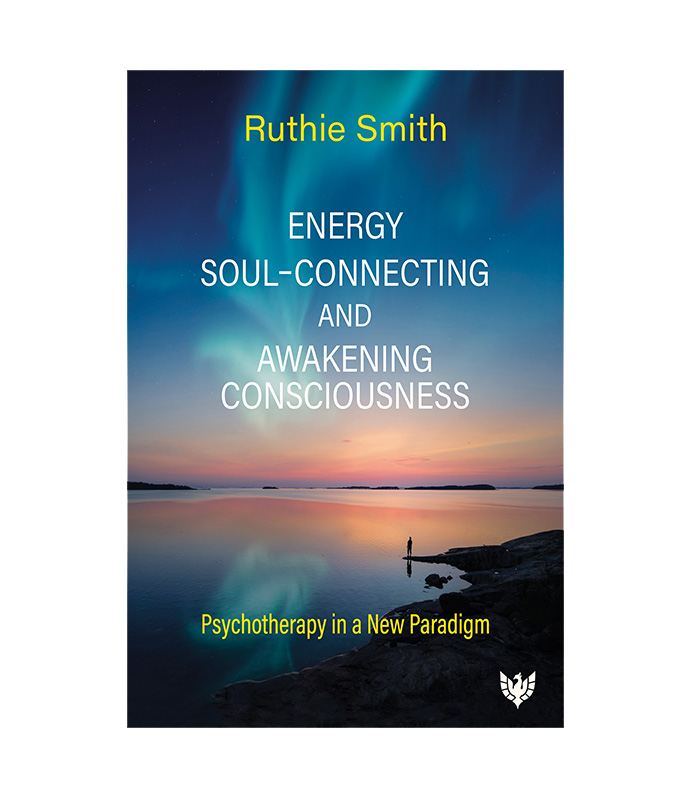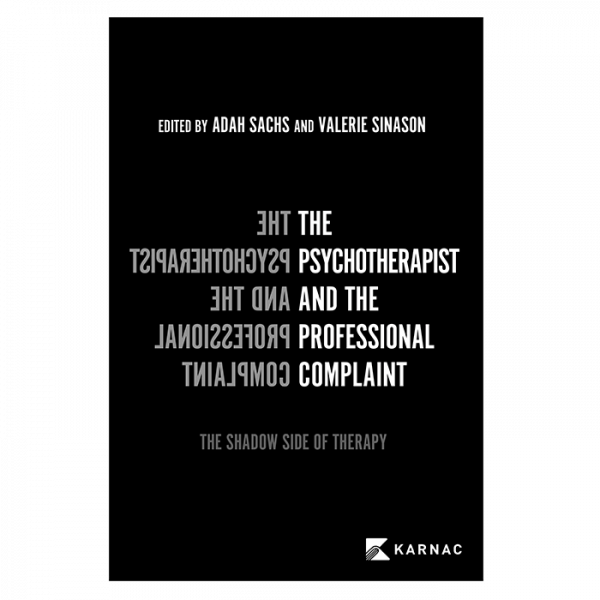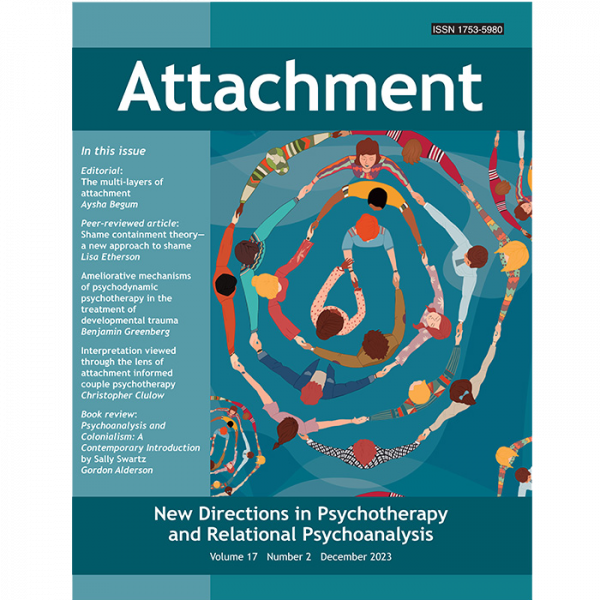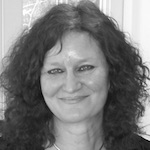Ruthie Smith introduces us to the world of working with energy and vibrations, and includes a few personal experiences as a musician, psychotherapist, and meditator. In the synthesis between disciplines – neuroscience, epigenetics, biology, quantum physics, trauma, and the links between the body, mind, and consciousness – new approaches are emerging for working with bodymindenergy. As part of ‘the shift’ in the wider world, where institutions are going through upheaval and restructuring, psychotherapy too is undergoing many changes. Energy psychotherapy is relatively new, combining relational ‘talking therapy’ with straightforward and easy self-applied energy methods for releasing the ‘dense’ energies of trauma, shame, fear, and guilt. This helps transform conflicted emotional states and ‘shadow’ energies, ‘raising the vibration’ and bringing about wholeness, integration, and expanded states of consciousness. The book offers an overview of energy methods which the reader can try out for themselves, with engaging clinical vignettes to illustrate the wide ‘reach’ of its applications. It also explores developmental models – depth psychology, ‘maps’ of the evolution of consciousness, and subtle energy – as a framework for safe, grounded work.
Suitable not only for trained therapists who are interested in learning about energy techniques, but also for those who wish to incorporate this practice into their daily lives, this book illustrates how energy psychotherapy can integrate the physical, psychological, transgenerational, transpersonal, and consciousness itself.





 Ruthie Smith is an attachment-based psychoanalytic psychotherapist (The Bowlby Centre) and energy psychotherapist with thirty-five years’ clinical experience in private practice, and ten years as a principal psychotherapist and supervisor in the NHS. She has taught extensively on psychotherapy trainings, speaks at various CPD conference events, has written several chapters and articles, and, after training in work with subtle energy and vibrational healing, founded The Flame Centre in London in 2009, specialising in trauma work. Alongside psychotherapy, Ruthie has a passionate interest in the ‘shift’ of humanity’s awakening consciousness, and in integrating energy and spirituality within psychotherapy. Previously trustee and chant leader of an international Buddhist organisation where she compiled training manuals about Buddhism, Ruthie currently runs Flame residential retreats. She also has a parallel career, in which she has toured the world as a jazz musician (saxophone and voice) and sings in classical ensembles. Director of a one year post graduate clinical training in energy psychotherapy hosted by Essential Therapy Training, Ruthie’s book, Energy, Soul-Connecting and Awakening Consciousness: Psychotherapy in a New Paradigm, introduces working with energy and the shift to the new paradigm to therapists, clients, and the general public.
Ruthie Smith is an attachment-based psychoanalytic psychotherapist (The Bowlby Centre) and energy psychotherapist with thirty-five years’ clinical experience in private practice, and ten years as a principal psychotherapist and supervisor in the NHS. She has taught extensively on psychotherapy trainings, speaks at various CPD conference events, has written several chapters and articles, and, after training in work with subtle energy and vibrational healing, founded The Flame Centre in London in 2009, specialising in trauma work. Alongside psychotherapy, Ruthie has a passionate interest in the ‘shift’ of humanity’s awakening consciousness, and in integrating energy and spirituality within psychotherapy. Previously trustee and chant leader of an international Buddhist organisation where she compiled training manuals about Buddhism, Ruthie currently runs Flame residential retreats. She also has a parallel career, in which she has toured the world as a jazz musician (saxophone and voice) and sings in classical ensembles. Director of a one year post graduate clinical training in energy psychotherapy hosted by Essential Therapy Training, Ruthie’s book, Energy, Soul-Connecting and Awakening Consciousness: Psychotherapy in a New Paradigm, introduces working with energy and the shift to the new paradigm to therapists, clients, and the general public.
Phil Mollon PhD, psychoanalyst, energy psychotherapist, past president –
‘This is a very fine and lucidly written introduction and guide for any psychotherapist or general reader who would like to understand more about the astonishingly effective methods of energy psychotherapy. Ruthie Smith gives a fascinating account of her own life experiences and therapeutic journey that led her to energy psychotherapy. She places all this in a wide-ranging context that embraces spirituality and higher consciousness, physics, and psychodynamics, to explain the nature of our subtle energy system and its interface with both mind and body. Clear instructions are provided for the reader to explore some of the well-known techniques. This is a delight to read!’
Jean White, author of Generation: Preoccupations and Conflicts in Contemporary Psychoanalysis –
‘As the title suggests, Smith´s book is as much a guide to being fully alive and interconnected as it is an introduction to energy therapy. Written with infectious enthusiasm and optimism, Smith´s work is deeply informed by her life-long (but non-institutional) practice of Buddhism and it also embraces an awareness of developments in neuroscience, quantum physics and the new paradigm. The book is greatly strengthened by Smith’s account of her own spiritual journey and her holistic approach. This book will interest all psychotherapists seeking to expand their horizons.’
Rebecca Cooper, energy psychotherapist –
‘This book moves psychotherapy on to a new level – Ruthie Smith has taken a huge step in the integration of psychoanalysis, the body, energy work, spirituality and quantum physics. She explores the different dimensions of our being – grounded in methods of working with energy therapeutically in simple and effective ways and illustrated by examples from Ruthie’s personal experience and from case vignettes. I found the quantum aspect fascinating and exciting – seeing experiences that may appear unexplainable put within a scientific framework, illustrating the nature of energy and how it works within the context of human connection. For a book so rich and diverse I found it very readable and immediately accessible. I believe it to be a groundbreaking addition to the field of psychotherapy.’
Sandi Radomski, ND, LCSW, an ACEP award winning innovator in the field of energy psychotherapy –
‘As I began reading Ruthie Smith’s impressive book, Energy, Soul-Connecting and Awakening Consciousness, I was immediately drawn into her story of transformation. We teach what we need to learn. Ruthie managed to meld her own personal history and needs with her search for her remedy. It is a compelling personal saga coupled with insightful questions and inquiry. She found what she needed to learn – energy psychology. Along the way, she offers the reader a vast and comprehensive compendium of knowledge of states of consciousness and paths to personal growth. She presents the techniques in a clear, understandable manner. I love that she describes Energy Psychology as focused more on healing than therapy. I highly recommend it.’
Anne Power author of Contented Couples –
‘Ruthie Smith invites us on a tour of new modalities and she makes the most informed and engaging guide. Her book is both a handbook for existing practitioners and an introduction for newcomers to energy psychotherapy and as someone who has not come across this work before, I found the breadth of her understanding inspires confidence and the clarity of her writing makes the journey a pleasure.’
Anne Power, UKCP-registered therapist and author, New Psychotherapist, Autumn 2023 –
‘This is an ambitious book, but Smith has impeccable credentials for writing it. […] This book would speak best to those who are already on board with energy work, or might provide a valuable handbook to practitioners who are embarking on it. […] The book is particularly interesting when Smith examines familiar concepts such as projective identification through the lens of energy therapy. There are also practical insights, such as the value of yawning and its links to yogic breathing.’
Phil Mollon, Psychodynamic Practice, 2024 –
‘Ruthie Smith has written an excellent and rather comprehensive introduction to the field of energy psychotherapy, an approach that has evolved in particular ways within the UK. […] I found the account of Ruthie Smith’s own personal and professional journey quite fascinating. […] It would be hard to find a more exciting and readable integration of the many streams of knowledge influencing contemporary psychotherapy. All that is valuable in psychoanalysis is retained, yet the additional perspectives provide a transcendent and new therapeutic landscape.’